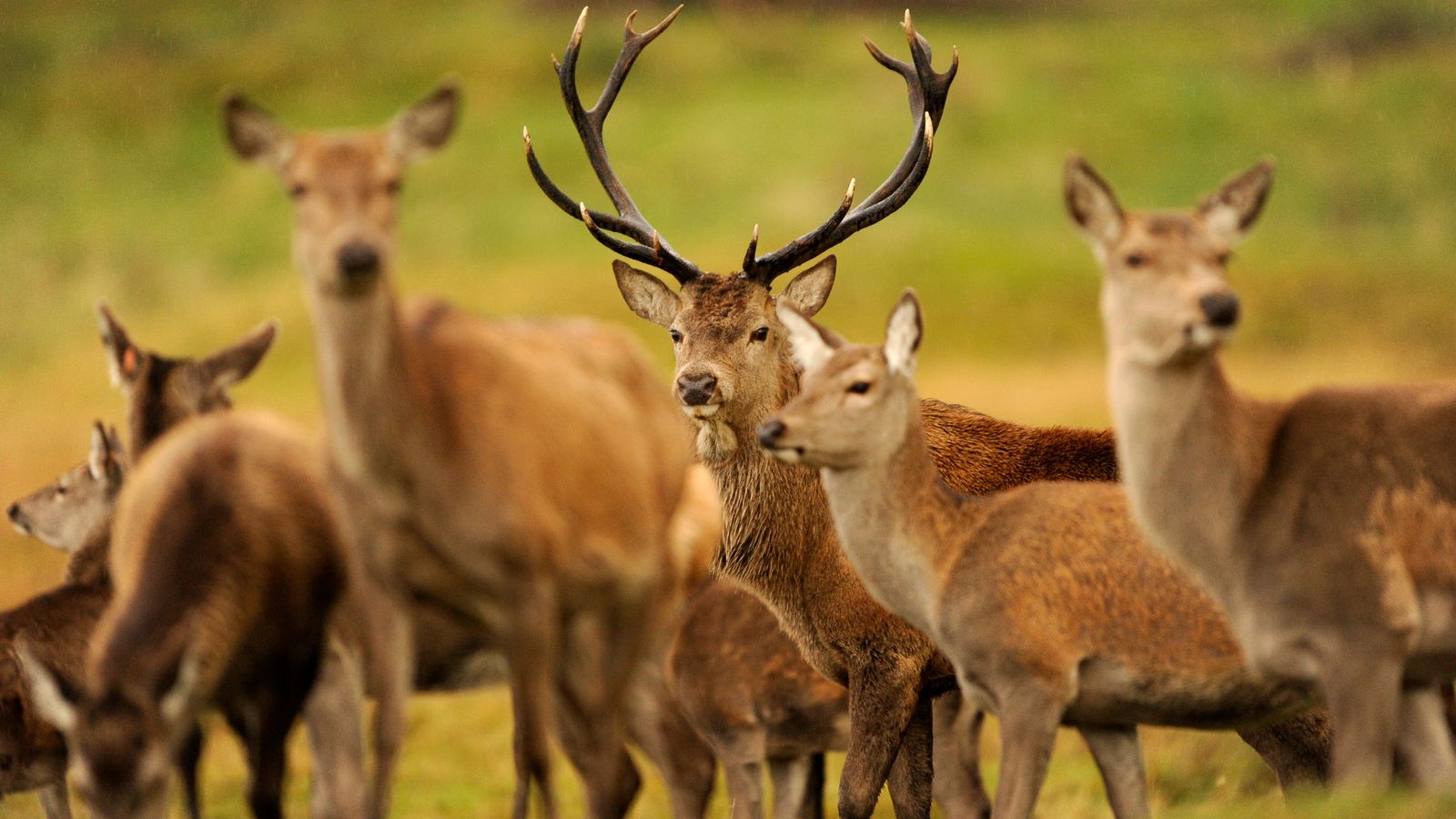A seemingly never-ending stream of deer bound across a main road, bringing traffic to a standstill. Two stags trot down a hospital corridor. A deer herd invades a surburban garden.
There’s a new brand of wildlife video doing the rounds on social media - and the generally positive image enjoyed by the animals means the scenes may delight onlookers.
But many experts say the largely uncontrolled growth of Britain’s deer population creates significant ecological dangers.
Spiralling almost always implies downward.
How about growing?Am I being stupid but would this not be a good reason to eat more of them? Be the wolves and Lynxes you want to see in the world.
Maybe. But location and population density. Means hunting with guns off privrate land. Is a little impractical in the UK. Wolves and lynx tend to be a safer option in many locations.
If they can cull deer in Richmond park I think it can be done safely in most places. If the population is that rampant then the introduction of wolves and lynx would end up causing a spike in predator populations in short order that may force them to find food closer to humans as well, which would then lead to the need to cull the predator species. I’d expect that a cull would be required if predators are introduced to start everything off in a balanced state.
Hence the off privrate land comment. Richmond is a royal Park where monitoring culls is easily achieved.
Wolves are not really a danger to humans. Dispite many fairly tales etc, they live with and avoid humans all over Europe. Like most wild predators they avoid humans. We have this idea from movies. Of wolves etc attacking humans. But even in India where leopards live in and around cities. We just don’t hear of them. Sightings are rare.
I lived in GA USA for 10 years. While we don’t have wolves there like more northern US areas. I often saw cyotes and black bears. Literally in Atlanta city center on a few occasions. Also one occasion a coyote crossing the road right in front of my car. 100ft from my drive. Small town just outside Atlanta (10min drive).
Yet 0 cases of human threats. Even though hunger and or habitats loss had drawn them to the city.
Wolves can safly manage dear populations in more public areas. Without having guns being fired throughout city streets and in suburban gardens. Unlike human hunters they tend to automatically look for weaker targets. Where humans trophy hunt.
Honestly I am not sure how you see eating dear changing,
We already do, people hunt dear on privrare land and pay a lot to do so. Following rules about what dear to hunt. And many do tend to eat the meat.
Its a rich person’s hobby. Because in 2024. No human in the UK hunts for survival or cheaper food. It simply is not cheaper then farming.
So while I agree morally killing to eat seems better. Honestly allowing natural preditors that belong in the UK do it. Seems like the better option.
This is the best summary I could come up with:
Defra is among the organisations highlighting problems caused by “excessive” deer grazing, including damage to crops, woodland, trees managed for timber and our natural biodiversity.
When large numbers of deer graze in woodland, it reduces plant and animal diversity - in turn affecting soil and releasing carbon, according to the Forestry Commission.
Common species including robin, wren and blackbird are less likely to be in woodland areas where there are deer, research by the British Trust for Ornithology shows, and vulnerable breeds such as nightingale, nightjar and woodcock are negatively impacted.
“When they’re basically giving over more time to be vigilant, keeping an eye out for who might be creeping up on them, they’re not foraging as effectively, which means they don’t put on as much weight, they’re not in such good breeding conditions, so that can reduce the birth rate.”
It is difficult to predict how successful reintroducing predators would be as a measure of controlling the deer population, and there might be periods of time where it has a bigger or smaller impact, Dr Sandom says.
Read more from Sky News:Two horses die on first day of Cheltenham FestivalPeople with facial tattoos, piercings and beards wanted to help train guide dogs
The original article contains 786 words, the summary contains 203 words. Saved 74%. I’m a bot and I’m open source!





